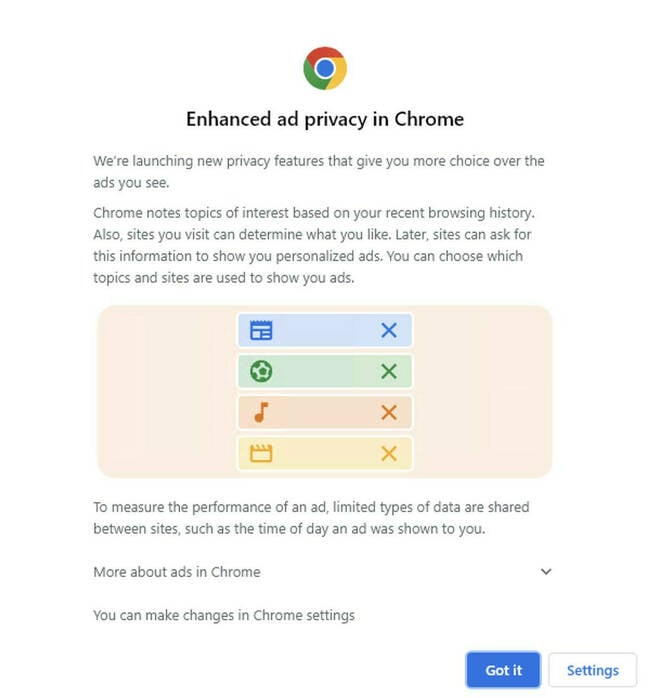Mayakshi
Learning Centre for Cyber Security & Privacy Professionals


Thomas Claburn
6 Sept 2023
Google next year aims to drop support for third-party cookies, which store browser data that ad companies use for tracking and analytics – to the frequent detriment of user privacy. The US mega-corp has developed a variety of replacement technologies, such as the Topics API that will allow ad targeting to continue without cookie-based tracking and – it's claimed – no privacy consequences.
Google has been gradually rolling out Chrome's "Enhanced Ad Privacy." That's the technology that, unless switched off, allows websites to target the user with adverts tuned to their online activities and interests based on their browser histories.
A popup announcing this functionality has been appearing for some folks since the July release of Chrome 115, which included support for Google's Topics API, which is part of the tech titan's Privacy Sandbox project.
Topics essentially works like this: rather than using cookies to track people around the web and figure out their interests from the sites they visit and the apps they use, websites can ask Chrome directly, via its Topics JavaScript API, what sort of things the user is interested in, and then display ads based on that. Chrome picks these topics of interest from studying the user's browser history.
Google has offered repeated reassurances that its Topics API does not allow companies to identify those whose interests inform its ad API. But some developers claim Topics may be useful for browser fingerprinting and both Apple and Mozilla have said they won't adopt Topics due to privacy concerns.
Google's popup appears to have regional variations that make the call to action and the button labels clearer and more consistent. One version that's been reported is titled "Turn on an ad privacy feature" and there's a button that says, "Turn it on."